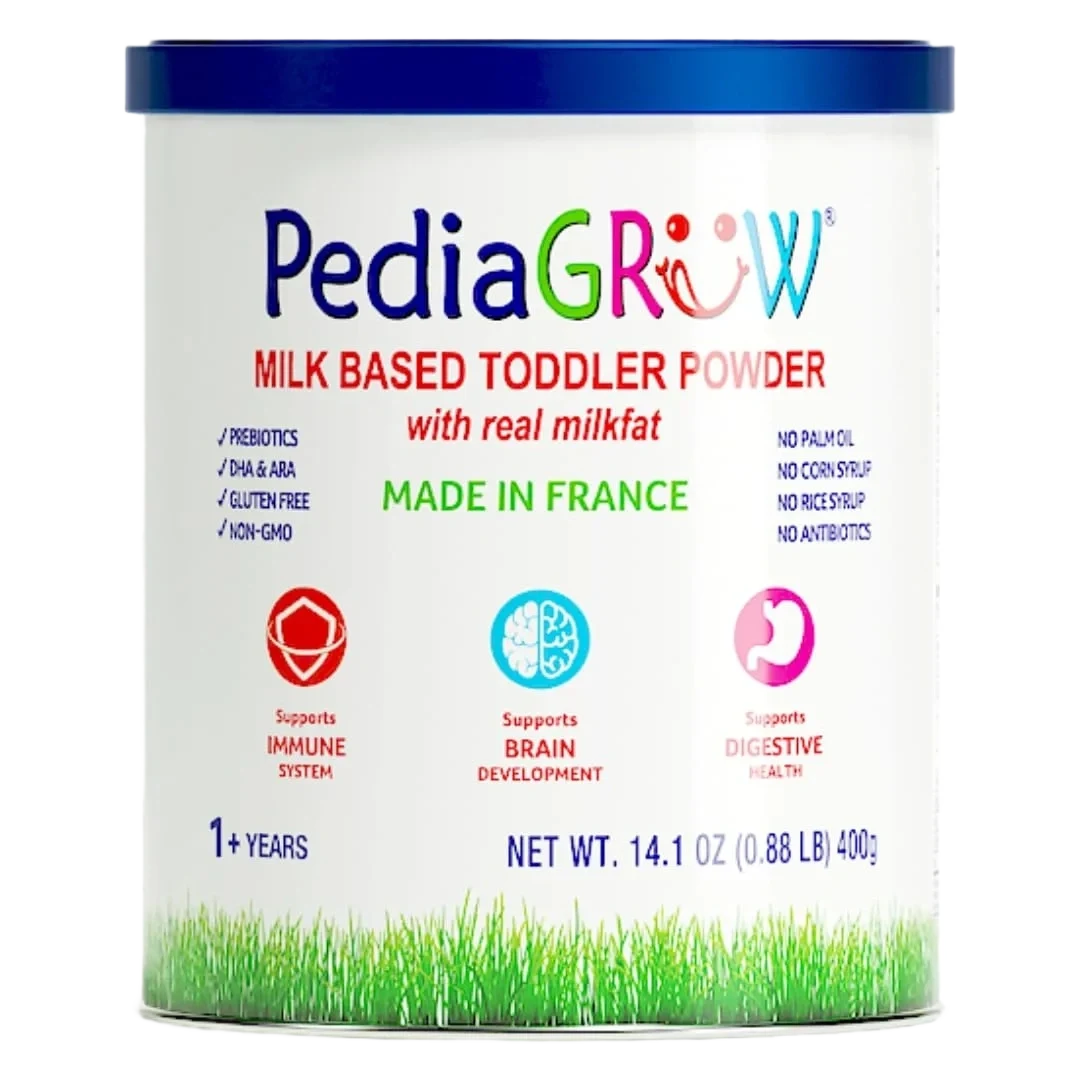PediaGROW Milk Based Toddler Powder with real milkfat
formula • For 6-12 month old babies • Consumable 🍝
Product Images
Product Photo

Tap to enlarge
Ingredient List

Tap to enlarge
Can older babies eat PediaGROW Milk Based Toddler Powder with real milkfat?
Check for Different Age (6 available)
Ingredients Analysis (48 found)
Common Questions About PediaGROW Milk Based Toddler Powder with real milkfat
Safe for older babies? PediaGROW Milk Based Toddler Powder with real milkfat
PediaGROW Milk Based Toddler Powder with real milkfat is not recommended for 6-12 month old babies due to potentially harmful ingredients.
What ingredients should I watch out for?
We analyzed 48 ingredients in PediaGROW Milk Based Toddler Powder with real milkfat. 1 avoid, 3 caution. Check the detailed analysis above for specific concerns.
Is this appropriate for older babies to eating formula?
The appropriate age depends on the specific ingredients. This analysis is for 6-12 month old babies. Use the age selector above to check other ages.
⚠️ Important Disclaimers
Product Recognition: Product names are identified by AI and may be incorrect. Always verify product identity yourself.
Safety Analysis: Evaluations are for research only - consult pediatricians for medical decisions.
No Guarantees: Results may be incomplete or inaccurate. Do not rely solely on this analysis.
